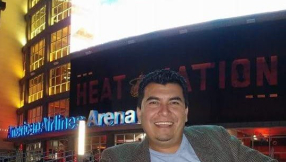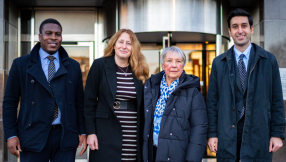Bishops discuss human sexuality at Lambeth Conference
But the day's discussion will not result in any change to the church's traditional teaching that marriage is a lifelong union between a man and a woman and that abstinence is right for those who are not called to marriage.
In a video message played to bishops during their morning worship today the Archbishop of Canterbury, Dr Rowan Williams, said that the Lambeth Conference would not be re-visiting Resolution 1.10 of the 1998 Lambeth Conference which, in addition to re-stating the traditional view of marriage, rejected homosexual practice as incompatible with Scripture but called for "pastoral and sensitive" ministry to all irrespective of sexual orientation.
Resolution 1.10 also committed the bishops to "listen to the experience of homosexual persons' and assured them that 'they are loved by God and that all baptised, believing and faithful persons, regardless of sexual orientation, are full members of the Body of Christ".
In his message to bishops this morning Dr Williams said the bishops were not being asked to re-visit Resolution 1.10 because, "We are not at a place where we would want to go over this again."
He reminded the bishops that Resolution 1.10 committed the bishops to a listening process, and asked: "Having listened, how can we act in the spirit of that listening?"
The discussion on sexuality comes on day 16 of a 19-day conference. The Rt Rev Colin Fletcher, the Bishop of Dorchester and part of the design group for this year's Lambeth Conference, told Premier Christian Radio that the decision to timetable this discussion so late in the conference agenda was deliberate.
He said: "It is a sensitive issue, it is a deep issue. When you have deep personal issues you want to make sure you are at a state - at a stage in the conference - where you really can listen to each other and you know each other.
"So over this period we've had time in Bible study groups and in what we call our Indaba groups really to get to know each other and that will help us in our listening to each other today."













